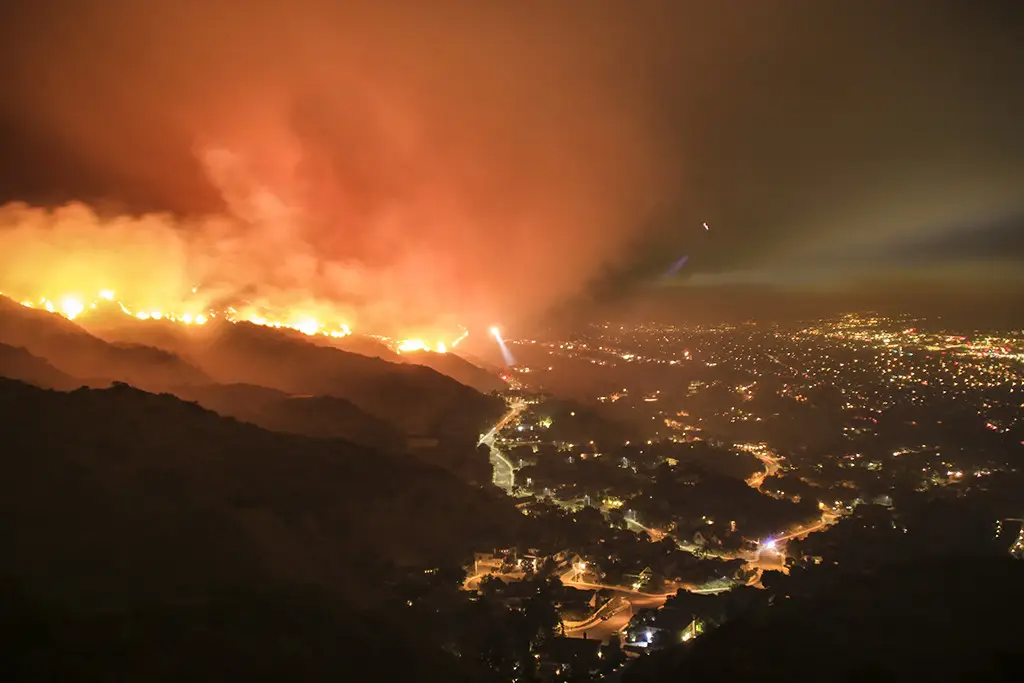Introduction
Since the start of the year 2023, a large number of forest fires have affected Cuba, an estimated 80 wildfires have been reported from January to March as per statistics and local authorities. On 19th February, 2023, the flames of disaster initiated from Holguin and intensified because of ongoing strong wind and drought conditions on the island. The most recent fire destroyed over 6,000 hectares of forest in the eastern region as fire had not a single focus point and was spread over a large area, therefore, the Cuban President said that the situation will be monitored by himself. It took more than two weeks to curb the spread of fire on 8th March, 2023, which was announced by Diaz-Canel, the President of Cuba. Using a social media platform, he announced “the spread of the forest fire in the territory of Santiago de Cuba has been stopped.”
Background
The Mensura-Piloto National Park in Cuba, which covers 6,046 hectares, which is also renowned for its forested mountains and flowing waterfalls, had previously been endangered by the fires. The latest large scale forest fires that was observed on the island’s east coast for more than two weeks was managed by Cuban firefighters, planes and Defense Force helicopters. Cuban President appreciated the efforts of firefighters and considered it as a “heroic fight.” Diaz-Canel said, “the courage and sacrifice of the firefighters, forest guardians and residents who face the fires devouring the beautiful and valuable forests of the eastern region in Pinares de Mayarí is great.”
 Impacts of Wildfires on Economy
Impacts of Wildfires on Economy
In the mountains of Pinares de Mayari, a pine forest region, in the province of Holguin of Cuba, the wildfire severely damaged forest plantations and coffee crops while causing serious damage. It is being said that the devastation caused by forest fires in Cuba could take several years to recover. The country is experiencing one crisis after another, COVID-19 pandemic has caused a sharp fall in the country’s tourism industry, one of its primary sources of income, resulting in the biggest economic crisis in the decades. The Gross Domestic Product (GDP) dropped by 11% in 2020 alone. Additionally, the country’s economy struggled a lot due to the sanctions imposed by the U.S. in Donald Trump’s era. Trump used maximum pressure on Cuba and also abandoned the measures taken by his predecessor, Barack Obama, to ease relations between the two countries. However, last year in 2022, Biden administration made few relaxations in Trump era sanctions on Cuba. The country’s fragile economy is still enduring hardships, the current economic distress in Cuba has exacerbated the situation in the form of the worst migration crises in its history, as well as shortages of food and other essentials.
Wildfires have become a serious issue in recent years due to the devastating economic, ecological and social effects they can have on communities. The consequences can be particularly severe for communities that rely heavily on tourism. Wildfires can have a devastating economic impact as the cost of fighting and suppressing forest fires is enormous. On the other side, the costs of evacuating people from the area, lost wages and business revenues, and the cost of rebuilding homes and businesses all have an indirect impact on the economy.
Conclusion
The wildfire is one of the most destructive and devastating natural disasters. The number of wildfires has increased in recent years as a result of climate change, human activity, and natural causes. As a result, it is critical to develop methods to reduce the risk of wildfires and mitigate their effects. The forest fires are becoming more frequent and intense as a result of climate change. This means that more areas are vulnerable to wildfires and the intensity of the fires is increasing, resulting in more destruction and loss of life and economic losses. To address this, governments and communities must collaborate to build more resilient landscapes for better managing existing fire risks through fuel reduction and other fire management strategies. Furthermore, it is the great time to adopt the policies for the mitigation and adaptation of climate change. Moreover, the governments of the countries that are more prone to forest fires should work together to foster a culture of fire safety by developing evacuation plans and educating residents about wildfire risks. Finally, investing in research and technology to improve early warning systems and firefighting capabilities is critical for all the stakeholders to be better prepared to respond to wildfires.

Research Associate, Pakistan House



